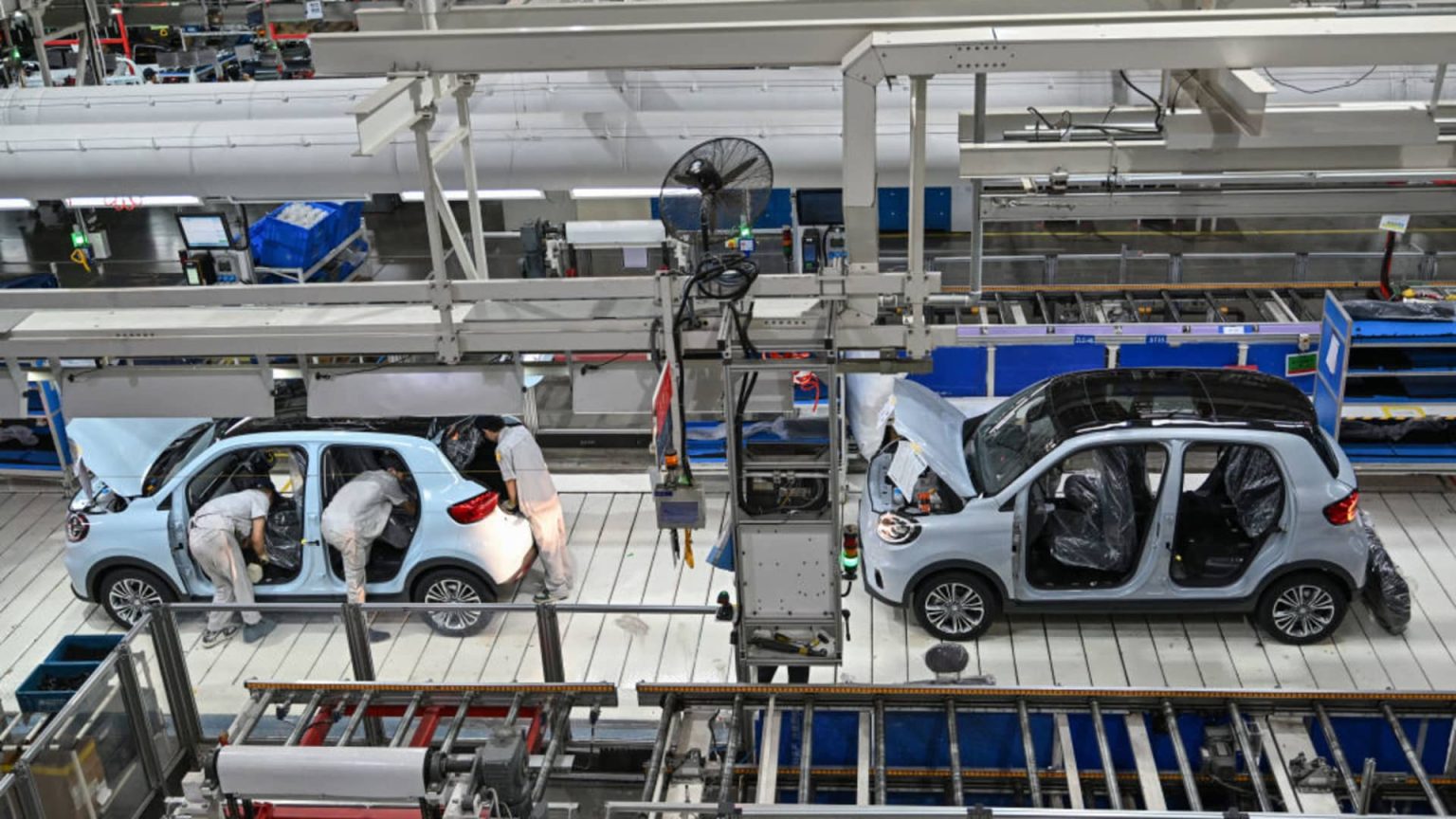The European Union has voted to adopt definitive tariffs on China-made battery electric vehicles (BEVs) after announcing its decision to impose higher tariffs on Chinese electric vehicle imports back in June. The EU stated that Chinese BEVs benefited from unfair subsidies and posed a threat of economic injury to electric vehicle producers in Europe. The duties were disclosed for individual companies based on their cooperation with the probe, with provisional duties in place since early July and revised in September. The China Chamber of Commerce to the EU expressed deep disappointment with the voting outcome, calling the EU’s adoption of protectionist trade measures unjustified and politically motivated. The chamber urged the EU to delay the implementation of the tariffs and focus on finding solutions through negotiations.
German automakers criticized the EU’s decision, with Mercedes Benz calling the tariffs a mistake and BMW stating that it marked a fatal sign for Europe’s auto industry. Crisis-stricken Volkswagen criticized the tariffs as the wrong approach that would not improve the competitiveness of the European automotive industry. The carmakers urged the EU Commission and Chinese government to continue talks to prevent a trade conflict and find a negotiated solution before the tariffs are implemented later this month. Swedish auto maker Volvo Cars, owned by China’s Geely Holdings, reiterated its commitment to building cars where they sell them and making significant long-term investments in Europe. French-Italian conglomerate Stellantis emphasized the importance of policies supporting demand and ensuring stability of the rules amid pressure from reducing CO2 emissions and Chinese competition.
Division within the EU was evident in the decision to adopt tariffs on Chinese BEVs, with varying opinions among EU members. While France supported the measure and pushed for negotiations, Germany advocated against the tariffs, expressing concerns about the consequences for its struggling car makers. Some EU members were wary of potential retaliation from China, as the country had already launched anti-dumping probes into EU exports such as pork and brandy, as well as an anti-subsidy investigation into EU dairy products. German Finance Minister Christian Lindner urged the European Commission not to trigger a trade war despite the vote for potential punitive tariffs against China, emphasizing the need for a negotiated solution to the ongoing trade dispute.
The European Commission’s proposal to impose definitive countervailing duties on Chinese BEVs received support from EU Member States for the adoption of the tariffs. The China Chamber of Commerce to the EU expressed dissatisfaction with the voting outcome, calling for caution in final measures and a focus on negotiations to overcome the trade dispute. German automakers criticized the decision, urging the EU Commission and Chinese government to find a negotiated solution to prevent a trade conflict. Swedish auto maker Volvo Cars reaffirmed its commitment to long-term investments in Europe, while French-Italian conglomerate Stellantis highlighted the importance of stable policies amid pressure from reducing CO2 emissions and Chinese competition.
The EU’s decision on tariffs for Chinese BEVs came after months of debates and deliberations among EU members. France supported the measure, while Germany raised concerns about the impact on its car makers and warned against potential retaliation from China. The EU’s decision has caused division among member states, with differing opinions on increasing tariffs and the need for negotiations to avoid a trade war. While the European Commission moves forward with the implementation of definitive tariffs on Chinese electric vehicles, there is still hope for a negotiated solution to the dispute before the tariffs go into effect later this month. The ongoing trade tensions highlight the complexities and challenges of managing trade relations between the EU and China.













